Beverly Crawford
|
University of California Berkeley |
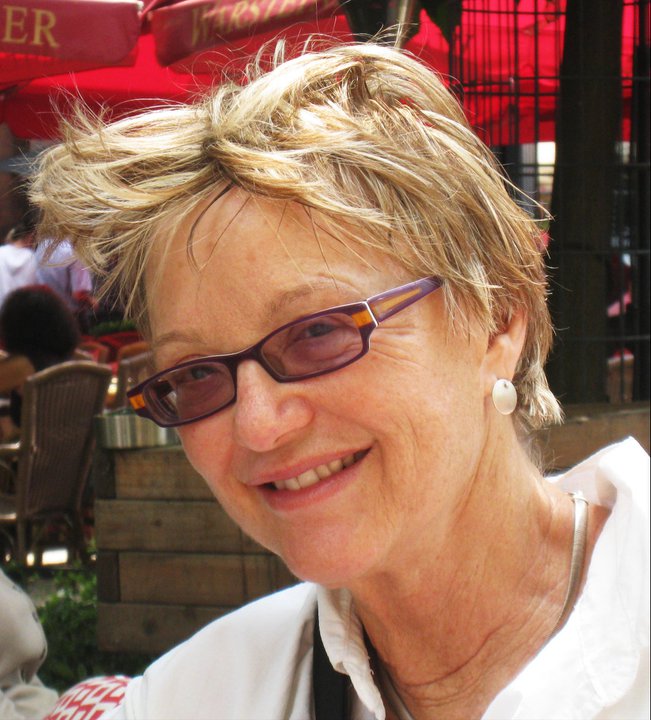
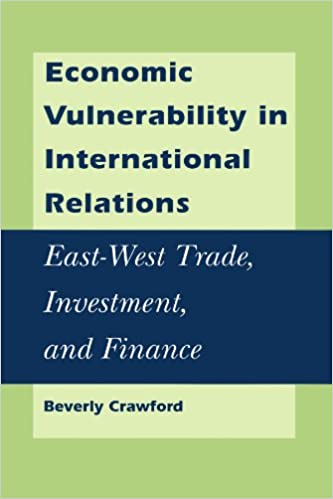
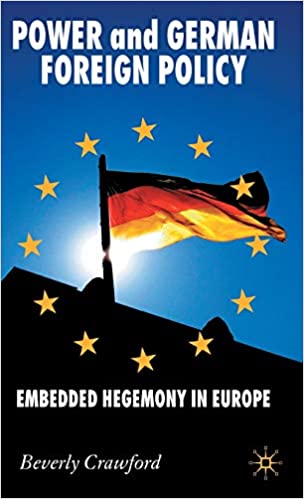

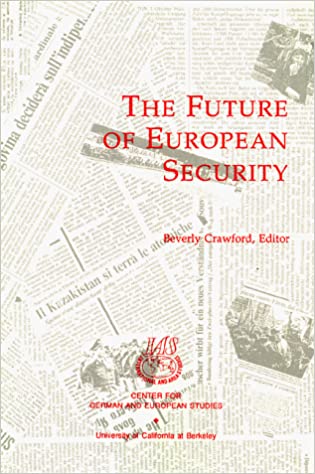
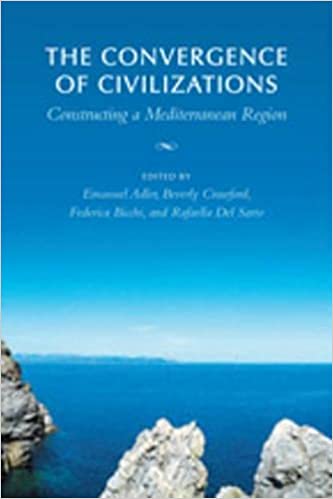
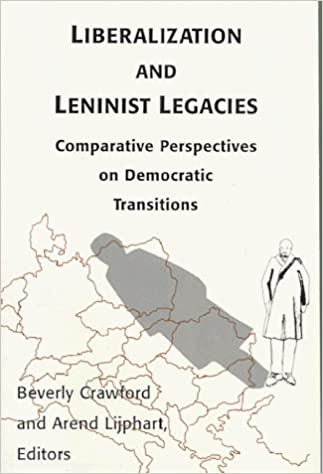
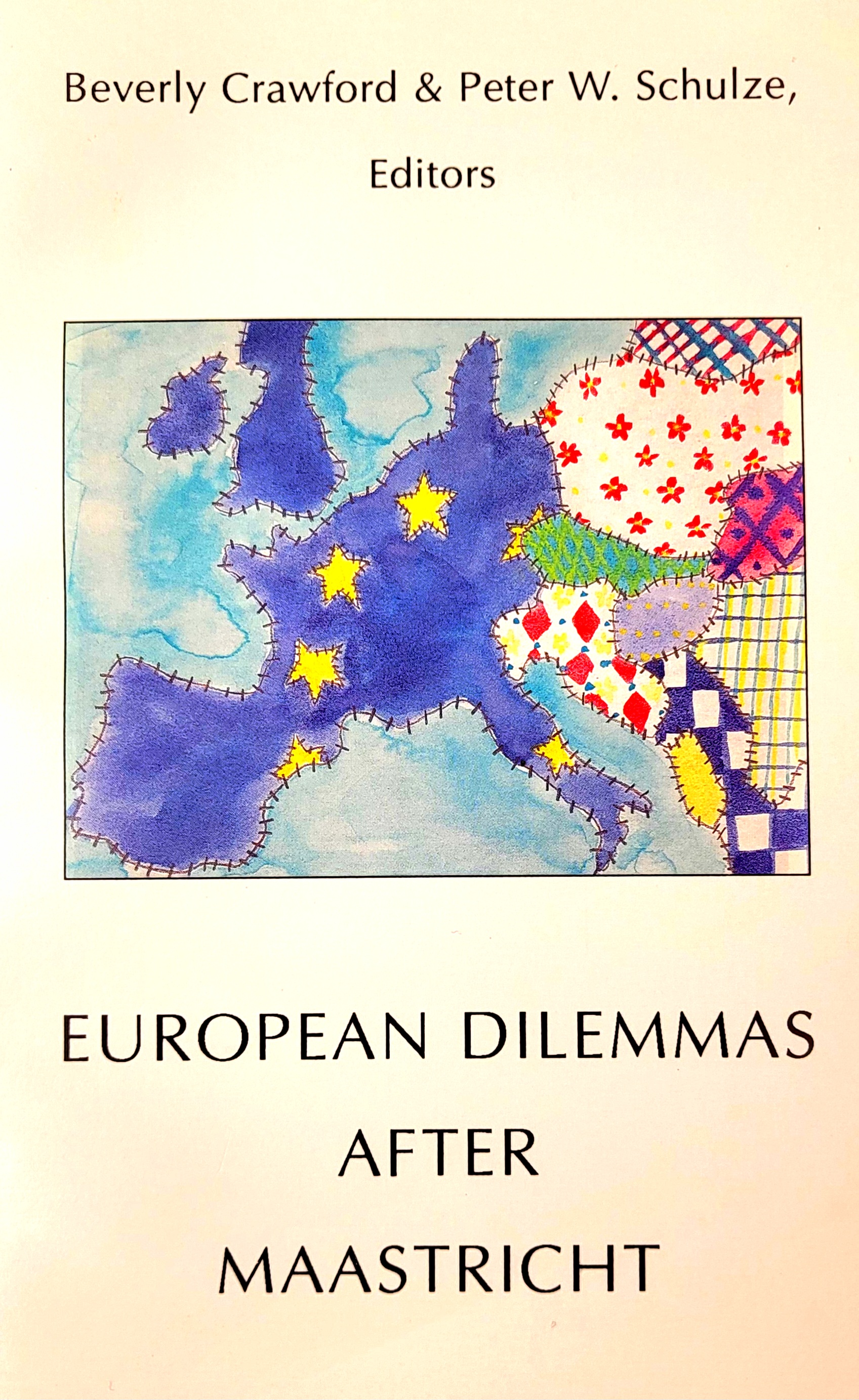
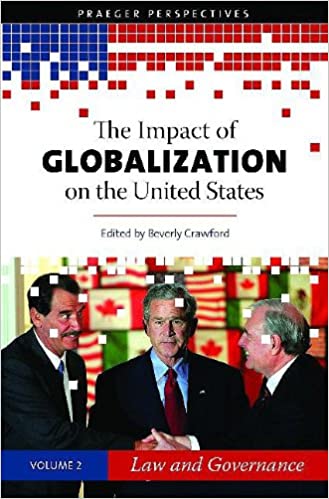
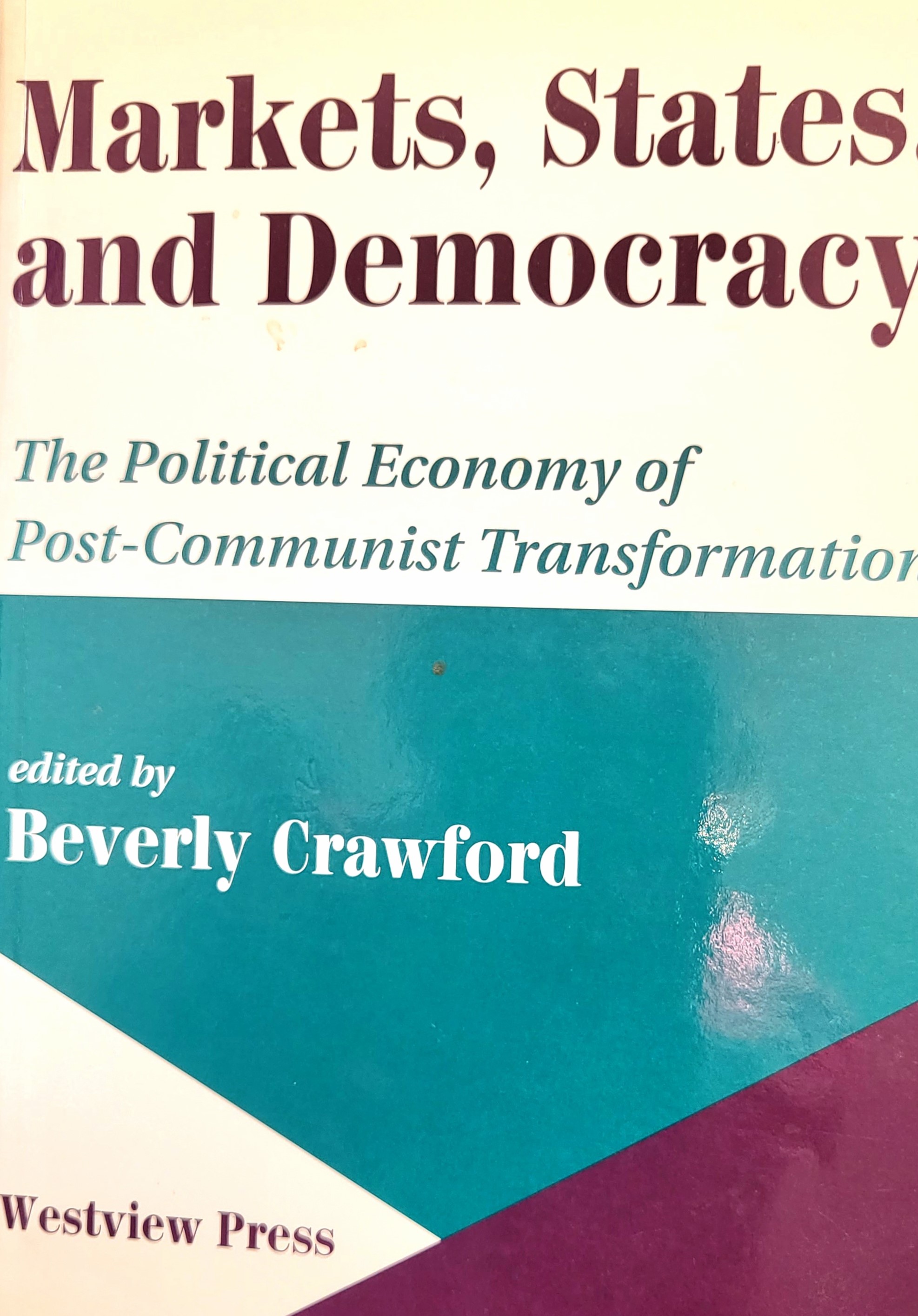
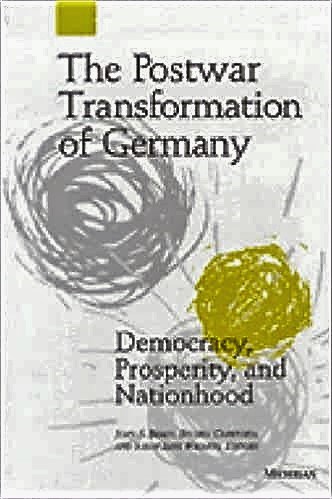
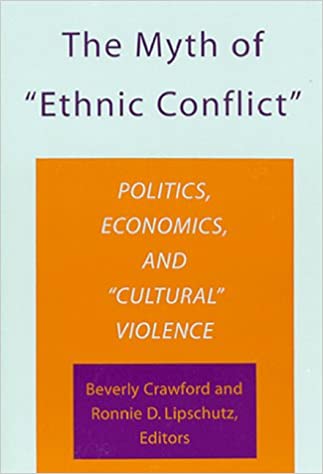
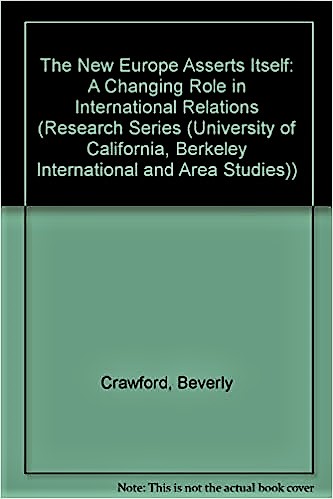

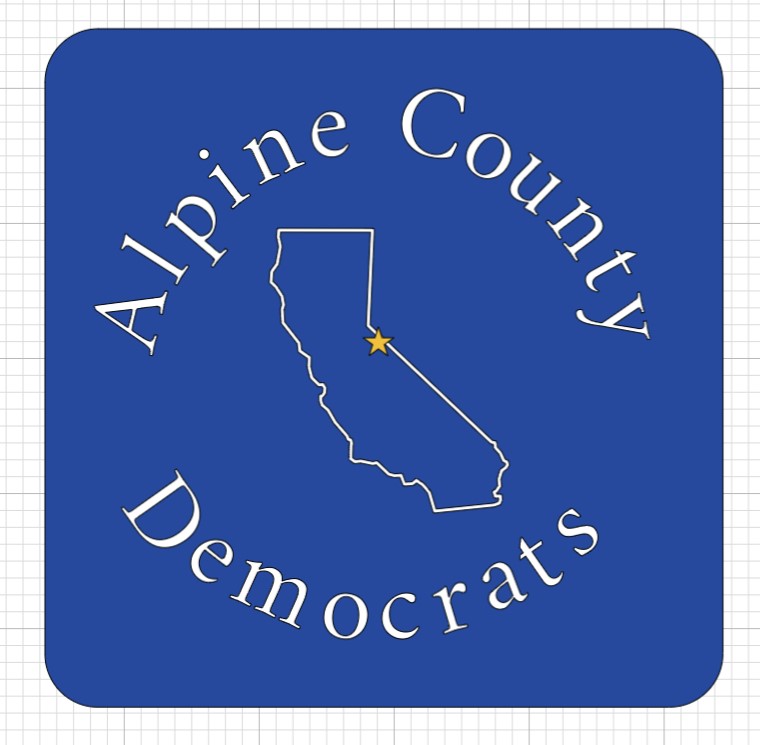



CURRICULUM VITAE
Beverly Crawford Ames
PROFESSIONAL EXPERIENCE
present Professor (emerita), International and Area Studies and Charles and Louise Travers Department of Political Science, University of California Berkeley
present Board Trustee Alpine County Unified School District
2018-2022 Vice Chair Alpine County Democratic Party Central Committee
2019 Senior DAAD Fellow American Institute of Contemporary German Studies
2008-2016 Chair, Center for German and European Studies, University of California Berkeley
2008-2014 Principal Investigator and Co-Director, European Union Center of Excellence, Associate Director, Institute of European Studies, University of California Berkeley
2000, 2003 Visiting Professor, MIEM - SDA Bocconi - Bocconi University, Milan Italy
2000 DAAD Professor, Free University of Berlin
1999 DAAD Professor, Technical University, Dresden
1987 - 89 Visiting Assistant Professor, University of California, Santa Cruz
1983 - 88 Assistant Professor, Graduate School of Public and International Affairs, University of Pittsburgh, PA 15260
EDUCATION
1982 Ph.D., Political Science, University of California, Berkeley
1973 M.A., International Relations, Boston University
1966 B.A., German, Chapman College, Orange, California
TEACHING FIELDS
International Relations (major field)
International Political Economy
Economics and Security
International Relations Theory
Public Policy Analysis
Foreign Policy Analysis
American Foreign Policy
COURSES TAUGHT
International Political Economy
The Political Economy of Ethnic Conflict
Classical Theories of Political Economy
Modern Theories of Political Economy
Economics and Security
International Law
Research Methods
Comparative Politics
International Relations Theory
Feminist Theories of International Relations
American Foreign Policy
PUBLICATIONS
BOOKS
Power and German Foreign Policy: Embedded Hegemony in Europe, Palgrave Macmillan 2007
"From the first page, Crawford's seductively written book grabs readers like a powerful novel. Suggesting that Germany's foreign policy has been characterized by the embedding of power in international institutions, it is a must-read for everyone interested in Germany's latest transformation and in innovative international relations theory." Emanuel Adler, Andrea and Charles Bronfman Chair in Israeli Studies, University of Toronto, Canada
"What shapes German foreign policy? Beverly Crawford asks important questions and gives cogent answers. Rather than merely describing policy outcomes, she explains them." Kenneth N. Waltz, Institute of War and Peace Studies, Columbia University
"Beverly Crawford's book offers a powerful and provocative argument that challenges much of the received wisdom about the foundations of and prospects for Germany's role in Europe and beyond. Even those readers who won't fully accept the argument will be impressed by its subtety and the evidence presented." Gunther Hellman, Professor of Political Science, Johan Wolfgang Goethe University, Frankfurt am Main, Germany
The book aims to fill the conceptual gap between international relations theory and foreign policy analysis, using Germany as a case study to explore the changing sources of a rising power's policy preferences. It argues that Germany is a regional hegemon and that its hegemony is embedded within European institutions. Using matched and contrasting cases, it tests the utility of dominent explanatory theories of international relations as they apply to foreign policy in three issue areas: diplomacy, foreign economic policy, and security. The evidence suggests that the more robust the economy, the more Germany’s power has been used to underwrite cooperation in Europe and in international relations. But economic stagnation and fear of stagnation lead Germany’s leaders to shift away from that role and assert self-interest more blatantly, most often by controlling EU institutional outcomes, but also to the point of defecting from international cooperation. Domestic politics, political culture, leadership, international institutions all contribute to German foreign policy behavior, but the principle factors at work are power and the state of the economy.
Economic Vulnerability in International Relations, (New York: Columbia University Press, 1993)
"Crawford's book represents a major step forward in our understanding of the interplay between economic and security concerns. No one has done a better job of extrapolating the lessons of the Cold War era to the Post-Cold War world." Barry Eichengreen, George C. Pardee and Helen N. Pardee
Professor of Economics and Political Science, University of California Berkeley
"An insightful discussion of economic vulnerabilities in trade issues likely to emerge in the post-Cold War world." Michael Mastanduno, Dartmouth College
In providing economic aid to Eastern Europe and the former USSR, many Western governments fear that they may be creating future economic competitors. With the global economy in the midst of a deep recession, Economic Vulerability in International Relations is a timely assessment of the prospects for East-West trade in the post-Cold War era. Crawford argues that during the Cold War, U.S. export control policy was not based on sound evidence concerning the “threat” of East-West trade, but rather on political and symbolic considerations. Policies based on these considerations are likely to persist in the post-Cold War world.
EDITED VOLUMES
The Impact of Globalization on American
Government and Law. Praeger Publishers 2008
The Impact of Globalization on
American Business and Economics co-editor with Ed Fogarty. Praeger
Publishers 2008
The Convergence of Civilizations? Constructing a Mediterranean
Region co-editor with Emanuel Adler, Federica
Bicci, and Raffaella Del Sarto. University of Toronto Press, 2006.
"The Convergence of Civilizations is a fascinating exploration of how regions are constructed in world politics. It uses the case of the Euro-Mediterranean partnership to inquire into the conditions under which a group of countries and peoples come to feel themselves somehow connected to each other. The authors are pioneers in the constructivist research program, and this book constitutes an important empirical contribution to a new and exciting way of thinking about international relations." -Jeffrey Kopstein, Director, Centre for European, Russian, and Eurasian Studies, University of Toronto"
"This brilliantly edited volume brings together an impressive list of scholars who take the reader through a journey from Brussels to the heart of the Southern Mediterranean. ...this volume provides an enlightening analysis of the region-building process of the Mediterranean area and a visionary sense of what will become of the Barcelona Process. Both policy-makers and scholars will find in this volume a radical new contribution to the study of regional security and peace and the Euro-Mediterranean Partnership. In many ways, The Convergence of Civilizations is the right book at the right time. --Sharon Pardo, Journal of Common Market Studies
The Convergence of Civilizations is a much welcomed, head-on attempt at challenging the overly abused ‘clash of civilisations’ doctrine. ...Adler and Crawford present the theoretical framework that underpins this endeavour. From a theoretical perspective, they suggest thinking about region building as a practice of regional governance. This conceptual contribution is a refreshing addition to a field which is undertheorised and helps advance the dialogue between IR and Mediterranean Studies towards new theoretical grounds." --Michelle Pace, Millennium
The Post-war Transformation of Germany: Democracy, Prosperity, and Nationhood, co-editor with John Brady and Sarah Wilson, University of Michigan Press, 1999.
The Myth of “Ethnic Conflict: Politics, Economics and Cultural Violence,
co-editor with Ronnie D. Lipschutz, Berkeley: International and Area Studies,
1998.
"the volume is built around two seminal essays [of which Crawford’s] ‘The Causes of Cultural Conflict: An Institutional Approach’ is one.” -- David Carment, American Political Science Review
Liberalization and Leninist Legacies: Democratic Transitions in comparative
Perspective, co-editor with Arend Lijphart (Berkeley: International
and Area Studies, 1997)
Markets, States, and Democracy: The Political Economy of Post-Communist Transformation (Boulder Co: Westview Press, 1995)
“The editor, Beverly Crawford, in the first and best contribution to the book, sets out the conditions under which new democracies can liberalize their economies. . . the editor’s introduction represents an elegant, operational framework that deserves to be read closely and used in research on the costs of liberalization and democratization.” --Slavic Review
European Dilemmas after Maastricht, co-editor with Peter W. Schulze (Berkeley: International and Area Studies, 1993)
The Future of European Security, editor, (Berkeley: U.C. Berkeley International and Area Studies, 1992).
Progress in Post-War International Relations. co-editor with Emanuel Adler (New York: Columbia University Press, 1991).
"It is an original and important work,". . ."everything there is tricky and controversial, but the authors do a fine and thorough job, and they show that the concept can be applied even in a field that often seems to leave little room for great hopes." --Joseph S. Nye and Stanley Hoffmann
"pioneering. . . a bold action worthy of notice." --Robert Keohane
"These studies explicitly join value concerns to theoretical analysis, a connection that was largely severed under the behavioral revolution.......they avoid utopiaianism and irrelevance, the charge against much of literature that paints wonderful new worlds while failing to show how we could possibly achieve them. The chapters are realistic in underlining that progress comes primarily through learning and politics. Finally, because much of this is exploratory work, it will help spawn important debates and further research." --Karl Holsti
A New Europe Asserts Itself: Europe's Changing Role in International Relations, co-editor with Peter W. Schulze (Berkeley: Institute of International Studies, 1990).
PEER REVIEWED JOURNAL ARTICLES
2023
"Democracy for the Few: A Review and Application of Craig Calhoun, Dilip Parameshwar Gaonkar, Charles Taylor, Degenerations of Democracy, Frances Fukuyama, Liberalism and its Discontents, and Stein Ringen, How Democracies Live, forthcoming in Global Perspectives, 2023
2021
"Unmasking the Weakness of Liberalism: Why the Future of the Liberal Order Is in Danger and What We Can Do to Safeguard It," Global Perspectives, Vol. 2, No.1, 2021.
2018
Merkel III: From Committed Pragmatist to ‘Conviction Leader’? with Ludger Helms and Femke Van Esch German Politics Volume 28, Issue 3, May 2018
2017
"The Puzzle of Persistence and Power: Explaining Germany's Normative Foreign Policy" with Kim B. Olsen, German Politics, Vol. 26, No. 4, Winter 2017, pp. 591-608.
"The Euro, the Gold Standard, and German Power, A Cautionary Tale," with Armon Rezai, German Politics and Society, Vol 35 No. 4 Winter 2017, pp. 77-104.
“The Puzzle of Public Opposition to TTIP in Germany” with Alexsia T. Chan, Business and Politics, Vol. 19 No. 4 Winter 2017, pp. 683-708.
2010
"The Normative Power of a Normal State: German Foreign Policy since Unification" German Politics and Society Vol. 28, No. 2, Summer 2010
2005
"Germany's Future Political Challenges," German Politics
and Society, Vol. 23 No. 4 (Winter 2005).
http://www.berghahnbooksonline.com/journals/gps/abs/2005/23-4/GP230404.html
2004
“Wie Lady Bismarck leidet,” in Cicero, Magazin fuer Politische Kultur, October 2004, pp. 58-63 http://www.cicero.de/berliner-republik/wie-lady-bismarck-leidet/36572
“The Bosnian Road to Nato Expansion,” in Journal of Contemporary Security Policy Vol 21 No 2, August 2000.
WAY BACK TIMES
"Explaining Defection from International Cooperation: Germany's Recognition
of Croatia" World Politics 48 (July 1996), 482-521. http://muse.jhu.edu/journals/world_politics/v048/48.4crawford.html
"Old Legacies, New Institutions, Hegemonic Norms, and International Pressures: Explaining Political and Economic Change in Post-Communist Eastern Europe" with Arend Lijphardt, Comparative Political Studies, Vol. 28 No.2 July 1995, pp. 171-199.
________ translated into Bulgarian and reprinted in Political Studies, (Summer, 1995) Quarterly Journal of the Bulgarian Political Science Association.
"German Foreign Policy and European Political Cooperation: The Diplomatic Recognition of Croatia in 1991" German Politics and Society Vol. 13, No. 2 (Summer 1995) pp.1-34.
"The New Security Dilemma under International Economic Interdependence," Millennium: Journal of International Studies Vol. 23, No. 1 (Spring 1994), pp. 25-55.
"How Regimes Matter: Western Control of East-West Trade Finance," Millennium: Journal of International Studies. Vol. 16, No.3 (December 1987), pp. 431-452.
"Stabilizing Factors in International Conflict Resolution," Negotiation Journal: On the Process of Dispute Settlement. Vol. 3, No. 3, (October 1987), pp. 333-345
"Decision Modes and Regime Change: Western Collaboration on East-West
Trade," with Stefanie Lenway, World Politics, Vol. 37, No.3 (April,
1985), pp. 375-402.
BOOK CHAPTERS
2022
"Why the Future of the Liberal Order Is in Danger and What We Can Do to Safeguard It" in The Future of the Liberal Order: The Key Questions Helmut K. Anheier, (ed.), London: Routledge 2022
2021
"Refugees and tTheir Allies as Agents of Progress: Knowledge and Power in Forbidden Boundary Regions" in Theorizing World Orders: Cognitive Evolution and Beyond Piki Ish-Shalom, , Markus Kornprobst, Vincent Pouliot (eds.), Cambridge: Cambridge University Press 2021
"Moral Leadership or Moral Hazard? Germany’s Response to the Refugee crisis and its Impact on European Solidarity" The Palgrave Handbook of EU Crises, Marianne Riddervold and Akasemi Newsome (eds.) London: Palgrave 2021 https://www.palgrave.com/gp/book/9783030517908#aboutAuthors
2014
Germany's Embedded Hegemony in Europe and Power Projection Beyond," in Routledge Handbook of Contemporary German Politics and Culture, Sarah Colvin (ed.) London: Routledge 2014.
2011
"Unterschiedliche Wissensformen und die Governance der arktischen Commons" co-authored with Falk Schützenmeister in Melanie Morisse-Schilbach and Jost Halfmann (eds.) Wissen, Wissenschaft und Global Commons: Forschung zu Wissenschaft und Politik jenseits des Staates am Beispiel von Regulierung und Konstruktion globaler Gemeinschaftsgüter (Reihe „Internationale Beziehungen“, Bd. XX, hrsg. von der DVPW Sektion Internationale Politik, Baden-Baden: Nomos Verlag, 2011)
2010
"The Normative Power of a Normal State," in Jeffrey Anderson and Eric Langenbacher, From the Bonn to the Berlin Republic, pp. 287-305, Berghan Books, 2010
2009
"Wann ist konsensuelle Wissenschaft 'Politische' Wissenschaft? Drei Paradoxien autoritativen Assessments" in Jost Halfmann and Falk Schuetzenmeister (eds.) Organisationen der Forschung: Der Fall der Atmosphaerenwissenschaften (VS Verlag fuer Sozialwissenschaften 2009)
2007
"Globalization and Cultural Conflict: An Institutional Approach" in Helmut Anheier and Yudhishthir Raj Isar, The Cultures and Globalization Series: Conflicts and Tensions (Sage Publications 2007)
2006
"The Impact of EU Enlargement on the Euro-Med Partnership," in Joaquin Roy and Roberto Dominguez, eds. Towards the Completion of Europe (Miami: University of Miami Press 2006)
2004
"Why the Euro-Med Partnership? European Strategies in the Mederranean Region," in Vinod K. Aggarwal and Edward A. Fogarty, eds., EU Trade Strategies: Between Regionalism and Globalism (New York: Palgrave Macmillan 2004)
2003
“Asia Beckons America: The Case of the Automobile Industry,” co-authored with Nick Biziouras in Vinod Aggarwal, ed., Winning in Asia, US Style: Market and Non-Market Strategies for Success, (New York: Palgrave Press, 2003).
2001
“The Fast Lane to Asia: Volkswagen and Peugeot in China,”co-authored with Nick Biziouras, in Vinod Aggarwal, ed., Winning in Asia, European Style: (New York: Palgrave Press 2001), pp. 160-186.
2000
“The Bosnian Road to NATO Expansion,” in Robert W. Rauchhaus, ed., Explaining NATO Enlargement (London: Frank Cass Press, 2000)
“Mediating Globalization and Social Integration in Post-communist societies: A comparison of Yugoslavia and Bulgaria” in Aseem Prakash and Jeffrey A. Hart, Responding to Globalization, (Routledge, 2000.)
WAY BACK TIMES
"An Empty Nest: Reconciling European Security Institutions in the Bosnian Crisis" in Vinod Aggarwal, ed., Institutional Designs for a Complex World: Bargaining, Linkages, and Nesting, (Cornell University Press, 1998).
“Explaining cultural Conflict in Ex-Yugoslavia: Institutional Weakness, Economic Crisis, and Identity Politics,” in Beverly Crawford and Ronnie D. Lipschutz, eds. The Myth of Ethnic Conflict (Berkeley: International and Area Studies 1998)
http://escholarship.cdlib.org/ias/crawford/crawford06.html
"Discourses of War: Security and the Case of Yugoslavia," with Ronnie D. Lipschutz," in Keith Krause and Michael C. Williams, eds. Critical Security Studies (University of Minnesota Press, 1997)
"Representations of Germans and What Germans Represent: American Film Images and Public Perceptions in the Post-War Era" with James Martel, in David E. Barclay and Elisabeth Glaser-Schmidt, eds. Transatlantic Images and Perceptions: Germany and America since 1776 (Cambridge University Press, 1997)
“Explaining Germany’s Unilateral Recognition of Croatia in 1991,” in Roland Schoenfeld, ed. Germany and Southeastern Europe--Aspects of Relations in the Twentieth Century Deutschland und Suedosteurope--Aspekte der Beziehungen im Zwanzigsten Jahrhundert (Munich: Suedosteurope-Gesellschaft, 1997)
"The Transformation of Identity in Comparative perspective," in Norbert Finzsch, ed. Comparative Reconstructions: Reconstruction and "Wiederafubau" in the United States and Germany: 1865, 1945, 1989 (London: Berghahn, 1996)
"Hawks, Doves, but No Owls: International Economic Interdependence and the Construction of a New Security Dilemma" in Ronnie D. Lipschutz, ed. On Security, New York: Columbia University Press, 1995).
"Forging Consensus on Multilateral Nonproliferation Export Controls: Three Lessons from the Cold War and Its Aftermath," in Gary K. Bertsch, Richard T. Cupitt, and Takehiko Yamamoto, eds., US and Japanese Nonproliferation Export Controls: Theory, Description, and Analysis (University Press of America, 1995).
"Export Controls in an Interdependent World: Toshiba's Sale of Illegal technology to the Soviet Union," in Gary W. Bertsch and Stephen Elliot-Gower, eds., Export Controls in Transition (Durham, N.C.: Duke University Press, 1992), pp. 249-290.
"Germany's Role in Europe's Security Future," with Jost Halfmann in The Future of European Security, Beverly Crawford, editor, (Berkeley: U.C. Berkeley International and Area Studies, 1992), pp. 216-249.
"Defining and Conceptualizing Progress in International Relations," with Jack Donnelly and Emanuel Adler in Progress in Post-War International Relations. Emanuel Adler and Beverly Crawford, eds., (New York: Columbia University Press, 1991), pp. 1-42. pp. 25-55.
"Toward a Clearer Understanding of Progress in International Relations," in Progress in Post-War International Relations. Emanuel Adler and Beverly Crawford, eds., (New York: Columbia University Press, 1991), pp. 438-68.
"The Roots of European Self-Assertion in East-West Trade," in A New Europe Asserts Itself: Europe's Changing Role in International Relations, Beverly Crawford and Peter W.Schulze, editors (Berkeley: Institute of International Studies, 1990), pp. 251-283.
"Western Control of East-West Trade Finance: The Role of U.S. Power and the International Regime," in Gary Bertsch, ed., The Control of East-West Trade: Power. Politics and Policy (Durham, N.C.: Duke University Press,, 1988), pp. 280-312.
"When Business Becomes Politics: A Case Study of the Trans-Siberian Natural Gas Pipeline Embargo" with Stefanie Lenway, in James Post, ed., Research in Corporate Performance and Policy, Vol., 8 (Greenwich, Connecticut: JAI Press, 1986) pp. 29-53.
Book Reviews, Policy Papers, Media essays, Encyclopedia Entries, Comment
2021
"It's Time to Change the Name of Indian Creek and Indian Creek Reservoir" The Record-Courier, November 11, 2021 and The Tahoe Tribune November 13, 2021
"Immigrant Integration: A lasting legacy for Angela Merkel" forthcoming German Politics and Society
2019
"The Dehumanization of Migrants and the Rise of the Extreme Right," American Institute of Contemporary German Studies, AICGS Adviser, September 11, 2019
"Sanctuary cities should call Trump’s bluff and welcome migrants," Berkeley Blog, April 19, 2019
2017
"Its the German Economy Stupid! Economic Indquality not Immigration explains the rise of the far right in Germany," Berkeley Blog, September 27, 2017
Refugees are Heroes: The Ban Hurts Us All, Berkeley Blog, January 30, 2017.
2016
Review of Hans Kundnani, The Paradox of German Power, London: Oxford University Press, 2014 in German Politics and Society, Vol. 34 No. 2 Summer 2016, pp. 98-102
2014
"Comparing Revolutions: Did Civil Society Really Play a Role? The Arab Spring 2011 and Eastern Europe 1989" with Denis Rolland, France-Berkeley Fund Report, 2014
2012
"The Most important Foreign Policy Challenges for the Next President," European Union Institute for Security Studies, October 2012
2011
"Ethnic Identity," Encyclopedia of Global Studies, Sage Reference Publications, 2011.
"The End of the West's Duplicity in a Transforming Middle East?" The Berkeley Blog, 2011 http://blogs.berkeley.edu/2011/05/03/the-wests-schizophrenia-in-a-transforming-middle-east/
2004
“Wie Lady Bismarck leidet,” in Cicero, Magazin fuer Politische Kultur, October 2004, pp. 58-63
Review of Randall Newnham, Deutsche Mark Diplomacy: Positive Sanctions in German-Russian Relations in Slavic Review, Vol. 63 no. 2 Summer 2004, pp. 427-28
2002
Review of Jeffrey Anderson, German Unification and the Union of Europe: The Domestic Politics of Integration Policy American Political Science Review Vol. 96 Issue 1,2002, pp. 255-56.
2000
Promising Futures: Promising Practices in Information Technology Training for Disadvantaged Adults, Report to the Ford Foundation, July 2000.
High Tech, Low Income: An Analysis of Multimedia Employment and Training in San Francisco’s Mission District Report for the City of San Francisco Mayor’s Office of Economic Development, February, 2000
WAY BACK TIMES
Review of James M. Buchanan, ed, Post-Socialist Political Economy: Selected Essays, (Lyme, N.H.: Edward Elgar, 1997) Slavic Review Winter 1999, pp. 887-888 (co-authored with Nick Biziouras).
Review of Denny Roy (ed.), The New Security Agenda in the Asia-Pacific Region (New York: St. Martin’s Press, 1997) in Millennium, Fall 1999.
Review of Claus Hofhansel, Commercial Competition and National Security: Comparing US and German Export Control Policies (Westport: Praeger, 1996) in The International History Review Volume XX Number 3, September 1998, pp.757-760.
“Economic Vulnerability; Turnkey Plants and Projects” in R.J.B. Jones, The Routledge Encyclopedia of International Political Economy (London: Routledge, forthcoming).
Review of Andrei S. Markovits and Simon Reich The German Predicament: Memory and Power in the New Europe and Peter J. Katzenstein, ed. Tamed Power: Germany In Europe in the American Political Science Review, 1998.
Review of Economic Containment by Michael Mastanduno in the American Political Science Review Vol. 87 No. 4 (December 1993).
Review of Opening the Soviet Economy by Jerry Hough and The Economy of Detente by Georges Sokoloff in the American Political Science Review Vol. 83 (December 1989), pp. 1456-59.
"Liberalizers and their Opponents in Post-Communist Societies," in Leslie Armijo, ed. Conversations on Democratization and Economic Reform:Working Papers of th Southern California Seminar, Los Angeles: Center for International Studies, University of Southern California, distributed by the North-South Center, University of Miami, 1995.
"Ethnic Conflict Isn't," with Ronnie D. Lipschutz, Policy Brief of the University of California Institute of Global Conflict and Cooperation, 1995.
"Economic Globalization and the 'New' Ethnic Strife: What is to be Done?" with Ronnie D. Lipschutz, Policy Paper No. 25 of the University of California Institute of Global Conflict and Cooperation, May, 1996.
"Western Vulnerability in East-West Technology Trade," Institute Occasional Papers (Pittsburgh: Institute for Strategic Economics, 1987).
"From Compliance to Consensus: Western Collaboration on East-West Trade," in Bernhard Buechner, ed.,The European Community Today (Chicago: Institute for European Studies, 1986), pp. 3-10.
FELLOWSHIPS and HONORS
Fellow, Hertie School of Governance
Fellow, France-Berkeley Fund
Austrian Marshall Plan Foundation Fellow
DAAD Visiting Professorship, Free University of Berlin, Technical University of Dresden
Friedrich Ebert Foundation Fellow
Senior Research Associate, Center for International Trade and Security,
University of Georgia
Fulbright Fellow,, Sofia, Bulgaria
National Fellow, Hoover Institution, Stanford University
Danforth Foundation Fellow
Fellow, Institute for the Study of World Politics
Fulbright Fellow, Free University of Berlin
Trustees' Fellowship, Boston University
Phi Beta Kappa nomination for Excellence in Teaching Award
Osher Lifelong Learning Teaching Award
MEMBERSHIP IN PROFESSIONAL ORGANIZATIONS
Member, Pacific Council on International Policy
American Political Science Association
International Studies Association
SPONSORED PROJECTS
Institutional Proects
Principal Investigator, German Academic Exchange Service: “Promoting German and European Studies in North America”
Principal Investigator, European Union Center of Excellence, European Union
Principal Investigator, U.S. Department of Education Grant for a National Resource Center, Western Europe
Principal Investigator, Social Science Research Council, "Women and Islam in the West,"
Individual and Collaborative Proects
Principal Investigator, "Comparing Revolutions: Latin America, Eastern Europe, and the Middle East," France Berkeley Fund
Principal Investigator, “Constructing Regional Integration in the Mediterannian, UC Institute on Global Conflict and Cooperation”
Principal Investigator, “Promising Practices in Information Technology Training for Disadvantaged Adults,” The Ford Foundation
Co-Principal Investigator, “Forging Pacific Economic and Business
Partnerships through the 21st Century” United States Information Agency
http://globetrotter.berkeley.edu/basc/newsletter/update02.html
Co-Principal Investigator, Global Economic Integration, Liberalization, and Ethnic Conflict, The Pew Charitable Trusts and the U.C. Institute on Global Conflict and Cooperation
Co-Principal Investigator, "Comparative Political and Economic Liberalization," Social Science Research Council
Co-Principal Investigator, "The Politics of Regional Trade Blocs", Pacific Rim Research Program Grant
Core Curriculum development and the development of a Minor in European Studies for International and Area Studies Teaching Programs and Colloquium on Modernization and Modernity, Council on Educational Development, U. C. Berkeley
Principal Investigator, "The Future of European Security," The Friedrich Ebert Foundation
Curriculum Development in Economic Issues and National Security, Exxon Education Foundation
"Western Trade Vulnerability," The Hoover Institution
"NATO Alliance Negotiations over Trade Restrictions with Warsaw Pact Countries," J. Howard Pew Freedom Trust, Diplomatic Training Program
"The NATO Alliance and the Trans-Siberian Pipeline Embargo," Exxon Education Foundation and the Institute of European Studies
SELECTED INVITED LECTURES
Keynote Address, DAAD “International Graduate Education in Germany and Abroad – A Global PhD” April 20 2018.
Keynote Address: "Why Can't Refugees Fly" USUNA Annual Meeting, Berkeley CA. January 21, 2018.
"Beverly Crawford Setzt auf Fakten" Interview for the DAAD Alumni Magazine, January 2017, pp. 8-11
Keynote Address: "Ukraine: Key to a New European Order?" Opening of the Rosa Luxemberg Foundation Program, Kiev, November 17, 2016
UC Berkeley Homecoming Address: "Why Don't Refugees Fly?" Benatao Auditorium UC Berkeley, September 30, 2016
"The Refugee Crisis after Paris and Cologne," UC Davis School of Law, January 28 2016
“Moral Leadership or Moral Hazard? German Response to the Refugee crisis and its Impact on European Solidarity” Georgetown University, BMW Center for German and European Studies, December 14, 2015
“The Political Economy of the Refugee Crisis in Europe: What Must Be Done?, Yasar University, Izmir, Turkey, September 15, 2015
"The European Union Neighborhood Policy after the Ukraine Crisis," From a Ring of Friends to a Ring of Fire," Florida International University, March, 2015
"The Gold Standard and the Euro: A Cautionary Tale," University of Pittsburgh, February 2015
"The European Union and the Ukraine Crisis," UC Berkeley, December 2014
"The Amazing Transformation of German Power," Free University of Berlin, December 2014
“The Crisis of the Eastern Partnership,” Hankuk University of Foreign Studies–Hyundai Research Institute EU Centre in Seoul, South Korea, November 2014
“The EU and Crisis in the Arctic,” University of Illinois, European Union Center of Excellence, March 2014
"German Macht - New Power in World Politics and Hegemon in Europe" University of Birmingham, Institute of German Studies, May 2013
" Linking Trade, Traditional Security, and Human Security," East-West Center, Honolulu Hawaii August 2011.
"EU Foreign Policy and the Arab Spring" Viadrina University, Frankfurt--Oder, July 2011
"The Political Economy of Arctic Conflict," Vienna University of Economics and Business, May 2011.
"Will Europe Lead the Transatlantic Partnership?" Jean Monnet Center, University of the Azores, January 7, 2011
Keynote Address: "A Teutonic Shift? The Revolutionary Potential of German Foreign Policy" German Studies Association Annual Convention, Oakland Convention Center, October 9, 2010
"Teutonic Shifts: the Underlying Forces of German Foreign Policy," Université de Montréal, September 2010
"Model Deutschland: Is it still Viable?" Conference on Deutschland und Europa: Grenzen und Grenzgänge(r), German Academic Exchange Service, Berlin, Germany, May 6, 2010
"A Teutonic Shift: German Foreign Policy and Embedded Hegemony in Europe" University of Birmingham, January 12, 2010,
"European Union Foreign Policy in the 21st Century" University of Birmingham, January 13, 2010,
"The Normative Power of a Normal State: Power and Revolutionary Vision in Germany’s Post-Wall Foreign Policy" University of Washington, Center for West European Studies, November 20, 2009
"The Teutonic Shift: Explaining Germany´s New Foreign Policy," Harvard University Berlin Dialogues, July 7, 2008.
"The Political Economy of Ethnic and Sectarian Conflict," Oxford University, Skoll World Forum, March 2008.
“US and EU Regionalism: The Case of Latin America,” Seminar on Trade Regionalism of the US and the EU: Cooperative of Competitive Strategies? University of California, Institute on Global Conflict and Cooperation, January 14, 2005.
"Democracy and Security in the Barcelona Process," Instituto Affari Internazionali, Rome Italy, May 8, 2004
"The End of the Barcelona Process? Swedish Institute for European Policy Studies, Stockholm, Sweden, January 15, 2004
“Old Legacies, New Institutions and EU Enlargement” Conference on Eastern Enlargement of the European Union: Confronting New Unknowns? University of California, Institute on Global Conflict and Cooperation and The Institute for International, Comparative and Area Studies, UCSD, May 24, 2003
“The Euro-Med Process: A Road to Peace in the Middle East?” World Affairs Council, San Francisco, CA., January 27, 2003
“The Euro-Med Process and EU Transregionalism:” Free University of Brussels, October 13, 2002
“Grand Strategy and American Foreign Policy,” Strategic Assessments Group, Washington D.C. September 9, 2002.
“Can Security be Enhanced through the Construction of a Mediterranean Region?” Conference on The Convergence of Civilizations? The Construction of a Mediterranean Region, Instituto de Estudos Estratégicos e Internacionais, Lisbon, Portugal, June 7-9 2002.
“Old Legacies, New Institutions: What will shape the EU Enlargement Process?”
Workshop on Cultural Legacies in post-socialist Europe: The role of
multiple pasts in the current transformation Process, Viadrina University,
Frankfurt/Oder, June 2-4 2002
“The impact of September 11th on the world economy: what risks lie ahead
for global business?” Workshop Internazionale Laboratorio di Economia
Politica Internazionale Istituto Affari Internatozionali, University of
Rome May 24, 2002
“EU Enlargement: Effects on the Euro-Med Process,” Conference on EU Enlargement and Southern Europe, Istituto Affari Internatozionali, University of Rome, May 22, 2002
“Globalization and Changing European Identities,” and “The Economic Globalization of Europe,” Conference on Globalization and Change in Europe, University of Georgia Center for Humanities and Arts, Athens, Georgia, February 20-22, 2002
“Economic Security after September 11,” Stockholm, Swedish Institute
of International Affairs, Conference on Economy and Security,
December 14, 2001
“Globalization and American Foreign Policy” Plenary Session Address, World
Affairs Council Annual Conference, Globalization: Going Global in
the Information Age Asilomar, California, May 5, 2001
“The EU as an actor in security policy: Rival or Partner of the United States?” Loccum, Germany, Conference on the Renewal of the Transatlantic Partnership, March 9, 2001
“Anticipating Ethnic Conflict” Social Issues Group, Office of Global and Geographic Issues, Bureau of Intelligence and Research, US Department of State, conference on Anticipating Ethnic Conflict: Framing the Analysis, Washington, DC, July 24, 2000,.
“The ‘Moscow Treaty’ of 1970 from the US Perspective: History, Importance, and Impact, Berlin, Germany, Second Colloquium of the German-Russian Commission of Historians, June 24, 2000
“Explaining US Policy toward the Ostpolitik of the FRG,” Potsdam, Germany, Conference on The Strategic Triangle: France, Germany, the United States, May 31, 2000
“The Local Leader’s Protection: Explaining the Transformation of Germany’s Export Control Policy,” Stockholm, Swedish Institute of International Affairs, Conference on Economy and Security, May 26, 2000
“The Seeds of Ethnic Conflict” Keynote Address, symposium on The Threat Next Door: Ethnic conflict Unleashed, Louis and Clark College, Portland, Oregon, April 4, 2000
“The Economic Causes of ethnic Conflict,”, June 24, 1999 Social Issues Group, Office of Transnational Issues, Central Intelligence Agency, and Office of Global and Geographic Issues, Bureau of Intelligence and Research, US Department of State, conference on Anticipating Ethnic Conflict: Framing the Analysis, Washington, DC.
“Hanging Together: US-EU Relations in the 1990s,” University of New Orleans, March 25, 1999
“Foreign Policy Utopias of Great Powers Revisited: A Comparison of Germany and the United States," presented at the Sixth German-American Historical Krefeld Symposium, Krefeld, Germany, May, 1999
“Methodological Problems in cross-disciplinary approaches to Post Communist Transition,” presented at the conference, Postcommunist Transformation and the Social Sciences: Cross-Disciplinary Approaches, sponsored by the Frankfurt Institute for Transformation Studies, Berlin, 30-31 Oct. 1998.
“Why did Germany give up the Deutschmark to join EMU?” Department of Political Science, University of Tuebingen, July 18, 1997.
“Feminist Theories and Methods in International Relations,” Projektverbund Friedens-undKonfliktforschung in Niedersachsen, University of Osnabruek, July 20-25, 1997
“Immigration and Ethnic Conflict in Germany,” Institute for Global Conflict and Cooperation, University of California, San Diego, Workshop on Global and Regional Governance, May 9-10, 1997.
"Why did Germany Recognize Croatia in 1991?" Friedrich Ebert Foundation, Bonn, Germany, June, 1996
"Non-Proliferation Export Controls: Lessons from the Cold War," University of Georgia, Athens, Georgia, April, 1995
"The Causes of War in Yugoslavia," York University Conference on Strategies in Conflict: Critical Approaches to Security Studies, Toronto, Canada
"Markets, States, and Democracy," The Henry Jackson School of International Studies, University of Washington, November 1992
"Is Europe Asia's Future?" East-West Center, Honolulu, Hawaii, October, 1992
"Economic Security in Post-Cold War Europe" Friedrich Ebert Foundation Conference on Europe after Maastricht, January 15-17, 1992
"Domestic Politics and German Foreign Policy in the New Europe," DAAD Summer Seminar, August 7, 1991
"NATO's Future at the End of the Cold War," World Affairs Council, San Francisco, CA., May 23, 1991
"Germany and the Transformation of Europe," DAAD Summer Seminar, August 1, 1990
"U.S. Foreign Policy Objectives at the End of the Reagan Era," Friedrich Ebert Foundation Conference on American Foreign Policy, Bonn, West Germany, November 1988
"High Technology, National Security, and International Politics," Berkeley Roundtable on the International Economy, May 1988
"The Prospect for Joint Ventures with the Soviet Union," Center for Slavic and East European Studies, University of California, Berkeley, "The Gorbachev Era: An Update," April 1988
"The United Nations: Prospects for Reform," Conference on the United Nations, University of Pittsburgh, April 1988
"High Technology and National Security," Institute of International Studies, University of California, Berkeley, April 1987
"Statecraft and State Capacity," Faculty Seminar on the State and Society, Harvard University, February 1986
"East-West Technology Transfer: Lessons for the Third World" Hebrew University of Jerusalem, December 1986
"Institutional Weakness and Policy Failure in East-West Trade," Conference on the State and Institutional Political Economy, Woodrow Wilson School, Princeton University, May 1985
"The State Against Itself," Conference on the State and the International Political Economy, UCLA, November 1985
UNIVERSITY SERVICE
Screening and selection Committees, International and Area Studies
COMMUNITY SERVICE
Board of Education Trustee, Alpine County California Unified School District
Member, Redistricting Commission, Alpine County California
Board Member, United Nations Association
PROFESSIONAL ACTIVITIES
Evaluation Committee, DAAD Sponsored Projects in North America
Evaluation Committee, France-Berkeley Fund
Fulbright Grant Selection Committee, UC Berkeley, Technical University, Dresden
Florence Mason Palmer Prize for Undergraduate Women in Political Science, UC Berkeley, Selection Committee
Selection Committee, DAAD Prize for Distinguished Scholarship in German Studies.
Research Support Advisory Board, American Political Science Association, .
Director, Summer Institute in Social Science Theory and Problems of Liberalization, a program for university students from Eastern Europe and the former Soviet Union
Endowed Programs Committee, American Political Science Association
Governing Board, International Studies Association, Atlantic Region
Editorial Board, German Politics and Society
Business and Politics
Article and manuscript referee, articles on trade and security policy, international relations theory, security issues, foreign policy analysis, post-communist transitions, ethnic conflict, and German foreign policy, for: German Politics and Society, Comparative Political Studies, International Security; International Organization; International Studies Quaterly; The American Political Science Review; European Journal of International Relations; Swiss Political Science Review; Journal of Theoretical Politics, Nationalism and Ethnic Politics, German Politics, University of California Press; Cornell University Press; The University of Michigan Press; Penn State Press; Scott, Foresman and Company; Brooks/Cole Publishing Company; Westview Press, Cambridge University Press.
Jury member and referee for: The Mershon Center Competition in International Security, The Ohio State University; The Harris Faculty Fellowship Program, Grinnell College; The Netherlands Institute for Advanced Study in the Humanities and Social Sciences, The German Academic Exchange Service, The Fulbright Commission..